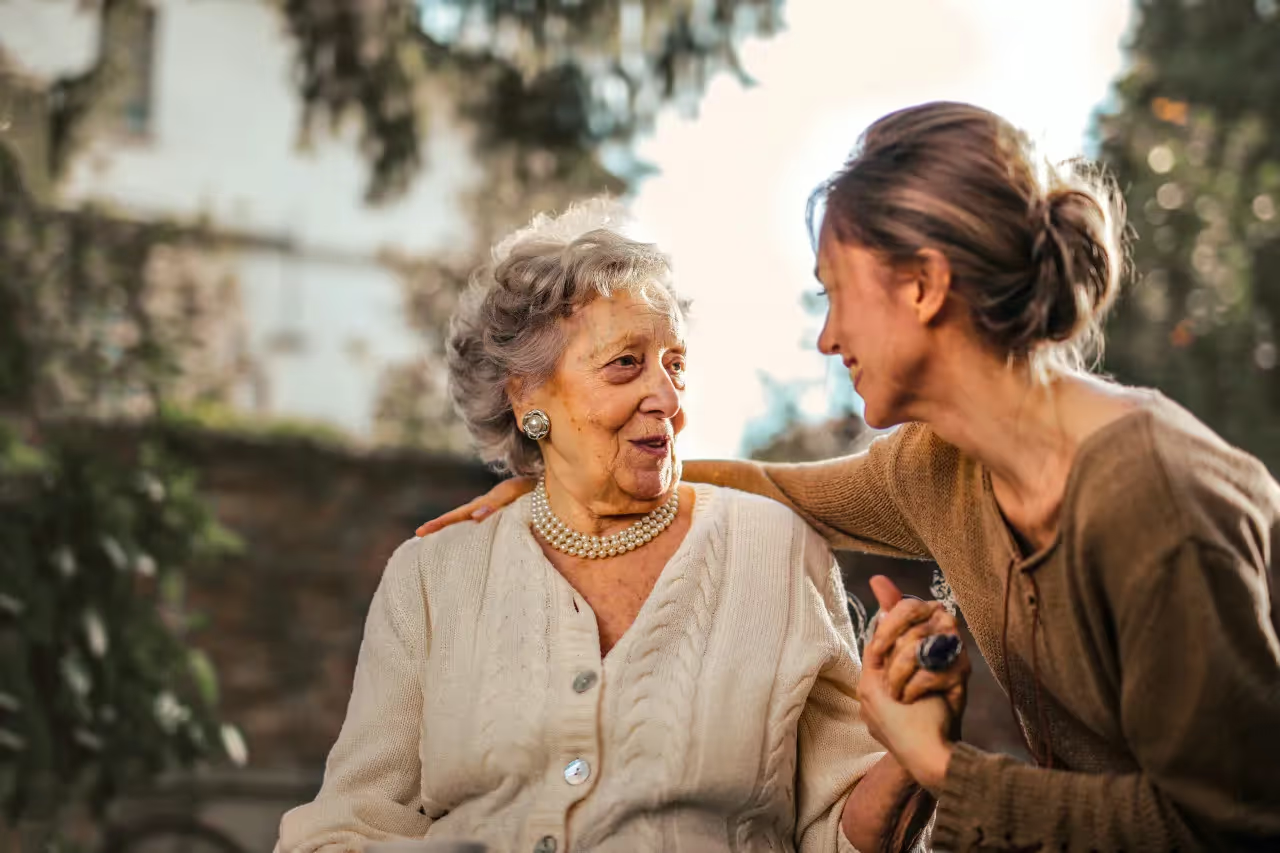Grieving people often struggle with painful and intense feelings, including profound sadness, guilt, depression, and anger. Depending on the impacts of...

Grieving people often struggle with painful and intense feelings, including profound sadness, guilt, depression, and anger.
Depending on the impacts of grief, grieving people usually have different needs, and as someone who cares for a grieving person, it might be difficult to know the best way to provide grief support.
However, there are five basic needs of grieving people you must know to help your loved one cope with their emotions and heal gradually.
One of those needs is an opportunity to express their grief.
While we often worry about what to say to our loved ones who are grieving, it's more important to create a comfortable environment for them to share their feelings without embarrassment or shame.
Also, grieving people often need help with practical tasks.
Losing a loved one is an extremely stressful experience that can make it difficult to practice daily living tasks, self-care, and participate in their "normal" daily duties.
Being there for your loved one to provide practical help will reduce the burden of responsibilities and allow them to focus on healing.
Similarly, people experiencing grief often need a mental and emotional health chaperone.
Aside from being unable to practice daily tasks due to grief, grief can also affect one's physical and mental health, causing several mental health problems such as anxiety and depression and physical health problems.
Read on to learn about five basic needs of grieving people:
As a well-meaning person, one of the basic needs of grieving people that you should know is that they need an opportunity to express their loss and grief.
They need to feel that their grief is acknowledged and that their lost loved one won't be forgotten.
People often make the mistake of avoiding conversations about the deceased to avoid making the bereaved feel uncomfortable.
While forcing a grieving person to open up is not ideal, it is essential to let your loved one know you are always open for conversations and you'll be there to listen.
You can ask questions when it seems appropriate, like "Would you like to talk about it?"; to give the bereaved an opportunity to share their feelings.
However, you must avoid asking sensitive questions, forcing them to open up, or being too nosy.
While many grieving people prefer to sit in silence, withdraw from friends and family, and grieve alone, there may come a time when they need to express how they feel.
One day, they may want to share memories and vent; the best way to provide comfort during this tough time is to listen compassionately.
Experiencing loss and grief can make simple daily tasks feel like a lot of struggle.
Common grief responses often include difficulty preparing meals, cleaning, shopping, and the inability to carry on with daily routines.
Thus, one of the basic needs of grieving people is practical assistance.
Nonetheless, many grieving people find it difficult to ask for help.
They may lack the motivation to ask for help, feel guilty about seeking support and attention, or fear burdening others around them.
So, instead of waiting for a cry for help from your grieving loved one, make it easier for them by readily offering assistance.
You can offer practical help such as running errands, shopping for groceries, dropping off food, receiving calls, babysitting, helping with insurance forms, accompanying them on a walk, driving them to important/sensitive locations or sharing an enjoyable activity with them.
A grieving person will feel more at ease when they receive help with practical tasks they are struggling with.
It also helps them feel less lonely during their grieving journey and encourages them to return to their "normal" life faster.
People going through grief often withdraw from others for various reasons, including coping with grief, avoiding unrealistic expectations of others, avoiding negative judgment, and so on.
Due to these reasons, they may find it difficult to socialize, maintain friendships, and get the adequate support they need.
Thus, one of the basic needs of grieving people is help in becoming socially reactivated.
If your loved one is grieving, you can support them by inviting them to small gatherings.
It could be an invitation to grab coffee together, a walk in the park or a ticket to see a new movie.
You must note that large gatherings might be overwhelming for them, so ensure that you start small.
Also, you can offer to connect them to support groups to help them through their grieving process.
There are many grief and bereavement support groups that can help your loved one connect with others going through similar experiences.
People going through grief often find understanding, healing, and strength through support groups.
Furthermore, keep in mind that they may say no and frequently reject your invitations.
People who are grieving sometimes need space and time alone to get through their loss, so be patient.
Even if they turn down your invitations, knowing you will be there for them whenever they are ready can be very comforting.

Well-meaning people often find it difficult to know the best way to communicate with people going through grief.
Finding the right comforting words can be a struggle, but it's always better to say something than avoid them or the topic.
Thus, one of the essential needs of grieving people is gentle and genuine communication.
When conversing with a grieving person, you can start by acknowledging their loss with a simple and sensitive choice of words.
For example, you could say, "I heard your dad died a few days ago."
It's best to talk candidly about the deceased rather than avoid conversations about them.
You can then proceed to express your concern and offer comforting words.
You can say, "I'm sorry to hear your dad died. I know how much you loved him."
In addition, paying attention to your choice of words is essential to avoid upsetting or unintentionally hurting your grieving loved one.
The "don'ts" of conversing with a grieving person you should beware of include diminishing their grief, providing solutions, comparing their experience to yours, providing advice, and commenting on their appearance.
If you don't know what to say, a simple hug, listening ears, or shoulder to cry on will go a long way in relieving a grieving person.
One of the basic needs of grieving people is an emotional and mental health chaperone.
It is common for grieving people to encounter intense emotions like confusion, profound sadness, or anger.
However, if they don't heal as time goes on???or if they get worse???this may indicate that their grief has evolved into a complicated type of grief.
Thus, if your loved one is grieving, you can provide support by watching out for signs of mental health issues.
Some signs may include hallucinations, social withdrawal, drug abuse, neglecting personal hygiene, excessive emotional expression, a focus on death, talking about suicide, or an inability to enjoy life.
Likewise, complicated grief can affect the emotional well-being of an individual and trigger unpleasant emotions.
A grieving person might suffer from feelings of numbness, emptiness, resentment, deep sadness, despair, denial, confusion, guilt, and so on.
If you notice any of these emotional or mental impacts of grief, especially if it's been over three months since the loss, it's a sign the grieving person needs professional help.
Providing grief support for your loved one can positively impact their grieving process and help them heal as time goes by.
Although everyone has unique grief needs depending on their circumstances, there are basic needs typical to grieving people.
The basic needs of grieving people may include an opportunity to address grief, help with practical tasks, assistance in becoming socially reactivated, gentle and genuine communication, and a mental and emotional health chaperone.
https://www.helpguide.org/articles/grief/helping-someone-who-is-grieving.htm
https://www.mwleemortuary.com/basic-needs-of-the-bereaved.html
https://www.cancercare.org/publications/67-how_to_help_someone_who_is_grieving
https://time.com/5118994/advice-for-helping-grieving-friend/
https://www.therecoveryvillage.com/mental-health/grief/how-to-help-a-grieving-friend/
If you find yourself having difficulty managing daily activities due to lingering feelings associated with grief such as sadness, anger, guilt or numbness; then it might be beneficial for you to seek professional help through our Colorado Springs Grief Counseling services. Our therapists are trained in helping clients identify their needs and goals related to grieving.
We offer a variety of specialized services, including individual therapy, group therapy, and various therapeutic approaches such as cognitive-behavioral therapy (CBT) or psychodynamic therapy.
Yes, we provide supportive counseling for family members who are struggling with the loss of a loved one. Our compassionate therapists can help you gain insight into your feelings and provide constructive strategies to cope with the pain of bereavement.
It is not mandatory that all conversations revolve around the issue causing your grief but our therapists will provide guidance on how best to process the situation. You are in control of how much or little you want to share in a session, but it is important to stay open and honest with your therapist for optimal results.
It is completely normal to feel dread or even fear when thinking about the upcoming holiday season. One way to ease your anxiety is by planning ahead and being prepared for how you will deal with tough moments. If there are certain events you know will be difficult, try to come up with an exit strategy beforehand so you can leave if needed. It can also be helpful to talk to a therapist or counselor before the holidays to help you manage your expectations and emotions.
Grief may feel worse at night because sleep disturbances are common during the grieving process. As nighttime falls, distractions diminish and we're left alone with our thoughts, which can make the loss feel overwhelming.